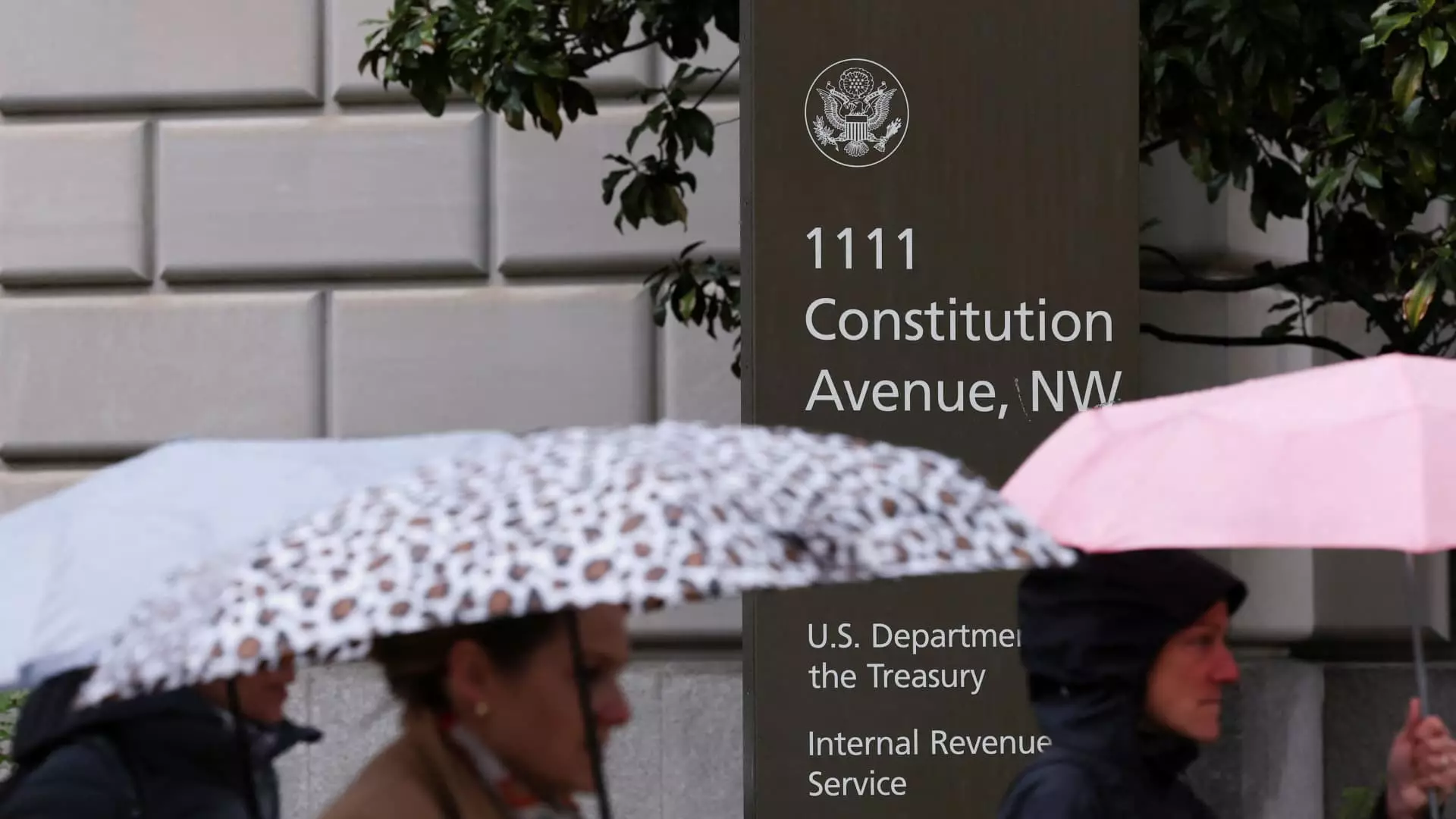In a bid to reimagine the efficacy of tax collection, the IRS made headlines in 2024 when it hired Wesley Stanovsek, a talented accountant specializing in complex financial structures. The agency was armed with a staggering $80 billion from Congress, targeting the financial labyrinths of high-net-worth individuals. Stanovsek’s background in S-corporations and partnerships seemed perfect for combating tax evasion among the wealthy. However, after a mere month, he was unceremoniously dismissed along with other newly hired agents. This abrupt firing left Stanovsek amid high-stakes cases involving millions that now risk being buried in bureaucratic oversights. With the IRS’s High Wealth division evaporating at an astonishing rate, the message to affluent taxpayers is clear: Now may be the best time to manipulate tax obligations without scrutiny.
Audits Dying a Silent Death
The recent upheaval at the IRS has sent shockwaves through the corridors of tax attorneys and high-flying accountants. As personnel cuts threaten the agency’s integrity, audits and investigations are grinding to a halt. Wealthy individuals and corporations are finding themselves in a climate that, ironically, may incentivize tax evasion rather than compliance. With a reported one-third of the IRS staff being laid off or accepting buyouts, the rich are looking more at proactive measures than preventive ones. As one attorney put it, “The agency is like a zombie right now,” suggesting a lack of coherent strategy and leadership. Faced with a higher probability of audits expiring due to the statute of limitations, many wealthy taxpayers are weighing whether to even file returns at all. The potential fallout of these decisions could reshape the American tax landscape dramatically.
The Great Tax Shelter Revival
Unfortunately, history has a way of repeating itself. In the late ’90s, prior cuts at the IRS opened the doors to a proliferation of convoluted tax avoidance schemes. Today, experts warn that similar circumstances are emerging, with fledgling tax shelters rearing their heads once again. When the tax authority lacks personnel, the environment is ripe for aggressive and potentially illicit tax-planning techniques. A Yale Budget Lab study underscores the severity of this situation, projecting that if current staff cuts linger for a decade, the IRS could see a nearly $160 billion dip in revenue. This staggering figure is compounded by other reports estimating an initial revenue loss of over $500 billion this year alone. The ramifications for federal funding and public services could be dire.
A New Age of Frustrated Taxpayers
If recent patterns are any indication, the ramifications extend far beyond just tax revenue; individual taxpayers are left in limbo, with unresolved cases and the imposition of undue financial penalties looming large. Tax attorneys report cases stagnating indefinitely, leaving clients trapped in a bureaucratic nightmare. One attorney details how an $8 million audit remains in a bureaucratic limbo, while another client finds a business sale stalled due to unresolved tax liens. Such impediments not only complicate individual financial obligations but also stifle entrepreneurship and economic fluidity.
Many wealthy taxpayers with extensive overseas investments rely on IRS personnel to ameliorate delays that otherwise lead to severe fines. However, as the agency’s workforce dwindles, automated systems are taking over—a move that could create a series of cascading failures. When taxpayers interact increasingly with machines rather than trained agents, the likelihood of discrepancies and misinterpretations grows dangerously high.
Automation vs. Human Insight
The IRS is relying heavily on artificial intelligence technologies to streamline operations and bolster its auditing processes. Treasury Secretary Scott Bessent asserts that this digital transformation will enhance efficiency and regulatory compliance. Yet, while it’s undoubtedly true that technology can identify common strategies that raise red flags, the limitations of AI in understanding nuanced human situations cannot be overlooked. Auditors have long operated with the unique ability to glean context and interpret complex financial narratives—skills that even the most sophisticated AI cannot mimic.
Moreover, the rigidity of AI-driven assessments comes with its own set of risks. When an algorithm arrives at a hasty conclusion based on data alone, the room for negotiation or clarification vanishes. Recently trained tax professionals are moving quicker than ever, but they lack the experience necessary to navigate intricate issues that demand a human touch—an undeniable drawback that could leave taxpayers doubly exposed.
This transition to technology-first operations indeed raises valid concerns about the quality of oversight moving forward, particularly in an era when the wealthy are likely to exploit every loophole available through aggressive planning tactics. With enforcement at an all-time low, the prospect of ethical tax compliance appears increasingly distant for many high-net-worth individuals.
The current state of affairs positions the IRS in a perilous combat zone. With an underfunded agency, diminished workforce, and an alarming lack of leadership, affluent taxpayers might find themselves in an unprecedented realm that borders on opportunistic tax avoidance. In this rapidly transforming landscape, the critique of austerity measures transcends mere policy debate—it challenges the very foundation of equitable taxation in a society increasingly defined by economic disparity.

